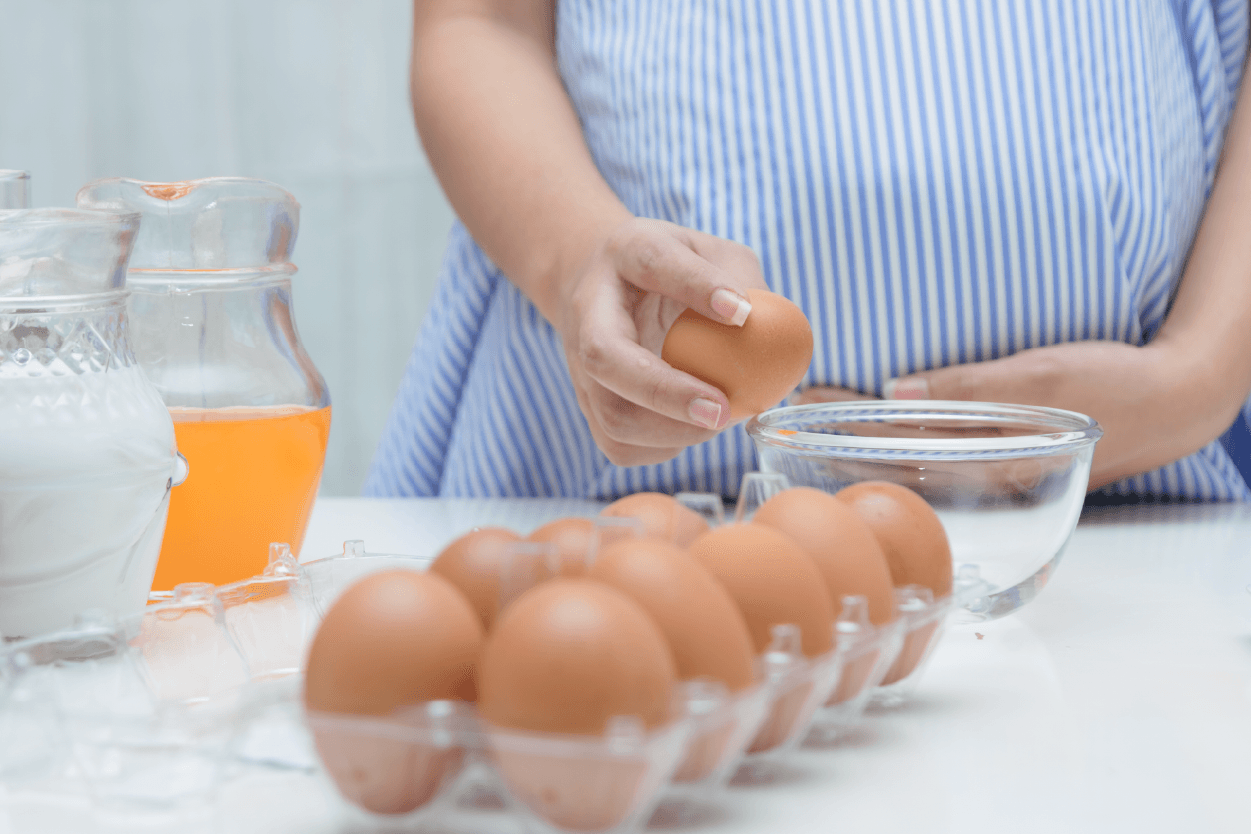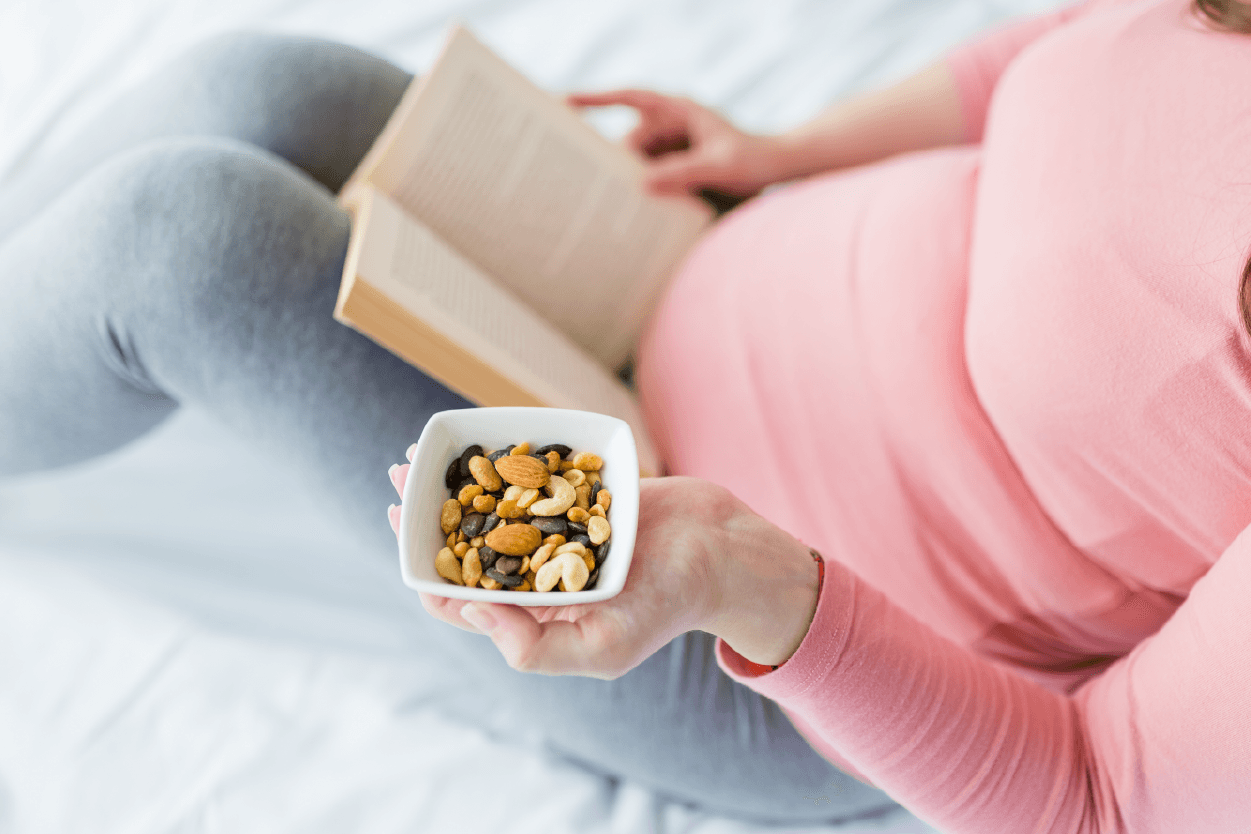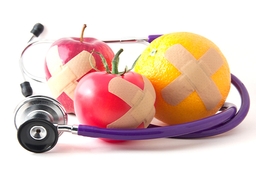Pregnancy Nutritional Needs

A married woman casually hopes for a double-red line. When this occurs, joy is unlocked and then mixed with worry. They must prepare for pregnancy. What is most important is to plan the nutritional intake.
Not only the body, but nutritional needs also change during pregnancy. It's not enough to just meet our nutritional needs. We have to meet the nutritional needs of our fetus so that it grows perfectly and healthily until delivery time.
To meet nutritional needs, we need to adopt a healthy diet, i.e., consuming foods high in protein, calcium, and iron, as well as various other important vitamins. But food alone is sometimes insufficient. This is why the doctors would like to recommend several important vitamins to consume.
Maintaining a healthy and balanced diet is important during this time. A good diet will help reduce various pregnancy symptoms, such as nausea and constipation, and even prevent stunting in your child.
Here are the nutrients you should consume during pregnancy:
Vegetables

Broccoli and dark green vegetables, such as kale and spinach, have many nutrients, including fiber, vitamin C, vitamin K, vitamin A, calcium, iron, folate, and potassium. The fiber content also helps prevent constipation. Eating vegetables can reduce the risk of low-birth-weight babies.
Proteins

Eat high-protein foods like eggs, fish, chicken, beef, nuts, and seeds every day. Lean beef contains high-quality protein and is rich in iron, choline, and B vitamins. Pregnant women need all of these in higher amounts.
Iron is an important mineral for producing hemoglobin in red blood cells. Pregnant women need more iron as their blood volume increases, especially during the third trimester. Low iron levels during early and mid-pregnancy can cause anemia. This condition increases the risk of low birth weight and various other complications.
Milk

During pregnancy, expectant mothers need extra protein and calcium to meet the baby's needs. Dairy products like milk, cheese, and yogurt are good choices. Dairy products are an excellent source of protein. Milk is also rich in calcium and various vitamins, such as phosphorus, vitamin B, magnesium, and zinc.
Legumes

Types of legumes such as green beans, soybeans, or peanuts are sources of fiber, protein, iron, folate, and plant-based calcium. During pregnancy, the body needs more of all these nutrients.
Folate is one of the most essential B vitamins (B9). Folate is extremely important for you and your baby, especially during the first trimester. Pregnant women need at least 600 micrograms (mcg) of folate every day. Legumes can increase your folate levels, along with supplements as recommended by a doctor.
Sweet potatoes

Sweet potatoes are rich in beta-carotene, a plant compound that the body converts into vitamin A. This vitamin is crucial for the baby's development, but excessive vitamin A from animal products, such as organ meats, can lead to poisoning.
Sweet potatoes are a good source of beta-carotene and plant-based fiber. Fiber keeps you fuller for longer, reduces blood sugar spikes, and improves digestive health, which can help reduce the risk of constipation during pregnancy.
Healthy snacks

If you feel hungry between meals, try not to consume high-fat and/or high-sugar snacks like candy, biscuits, chips, or chocolate. Instead, opt for healthier foods that help meet nutritional needs. For example, vegetable salads, vegetable soup, fresh fruits, or a small bowl of unsweetened cereal.
Water

Aside from food, you also need to stay hydrated. Make sure to drink enough fresh water—at least 8–10 glasses per day.
Water helps deliver nutrients to the baby and assists the body in producing new cells. Getting enough water is also one of the best ways for you to prevent constipation. Plus, it helps avoid the risk of premature delivery.
Eat slowly

Nausea, indigestion, or experiencing digestive disturbances can reduce your appetite. Don't linger in this condition, as it can lead to nutritional deficiencies for both you and your baby. Try to eat in small portions but frequently throughout the day.
Don't let your body down!
To keep the body fit during pregnancy, besides consuming nutritious food, pregnant women also need to do the following:
1. Take multivitamins
Pregnant women need prenatal vitamins such as folic acid, calcium, and iron. These multivitamins contain DHA, EPA, or both, which are beneficial for fetal development and preventing birth defects. They also contain omega-3 fatty acids necessary for the baby's brain development.
2. Get enough sleep
Hormonal changes can make it difficult for pregnant women to sleep. However, pregnant women need sufficient sleep. Take short naps if you feel tired, and schedule naps whenever possible. Set a sleep schedule and stick to it. Sleep for 7-9 hours every night. Pregnant women need more rest, so sleep as much as you can.
3. Engange in light exercise
Exercise is beneficial for both the mother and the baby. In fact, regular exercise helps pregnant women address many issues that arise during pregnancy, such as insomnia, muscle pain, excessive weight gain, and mood swings. Consult a doctor to get the right exercise routine.
4. Regular sexual activity is okay
Having sex during pregnancy is permissible, as long as there are no complications, such as placenta previa or other high-risk pregnancy types. Safe sex with your husband can continue until the water breaks. Don't push it if you feel uncomfortable; try new positions.
For optimal health, pregnant women need to avoid certain types of foods. For example, uncooked seafood; raw or undercooked eggs and meat; high-sugar or high-fat foods, or both; drinking alcohol or smoking.



